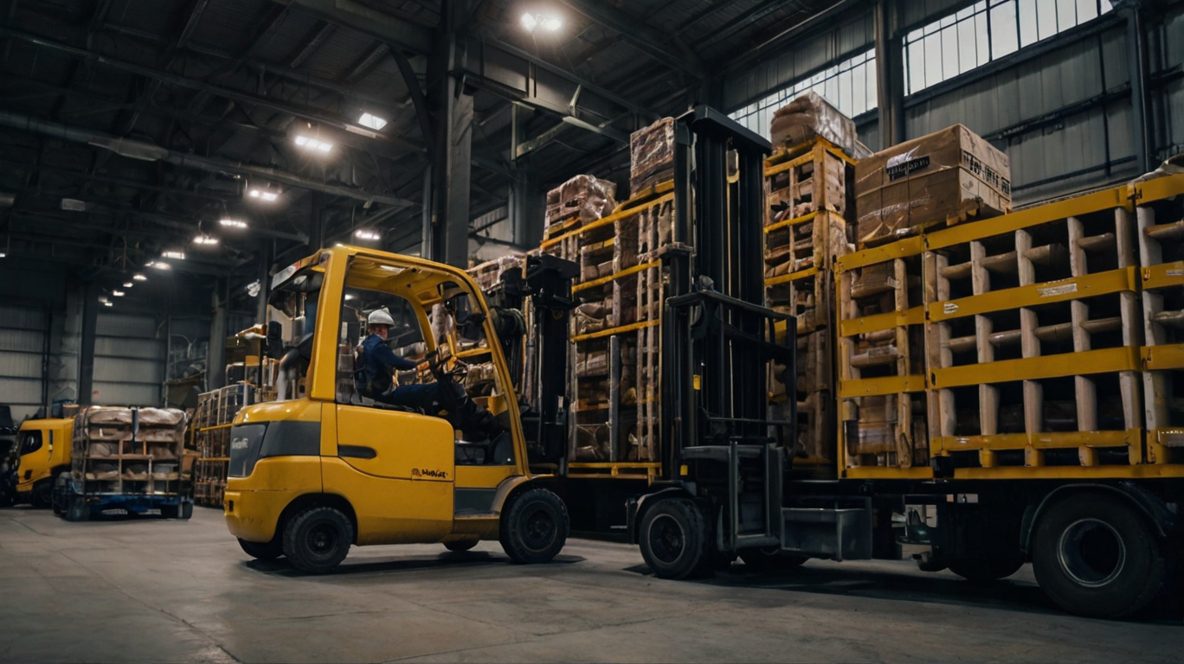
DHL Express Suspends Valuable Consumer Shipment to the US
DHL Express has put a stop on the shipment of consumer packages to the US valued over $800. This has come as a shock to the global e-commerce market. The decision comes as a result of the Trump administration policies which caused an increase in delays regarding US customs. While B2B shipments go on, there is a possibility for delays, which adds to the chaos global supply chains are already in for businesses and retailers who require fast delivery.
De minimis customs threshold drops to $800
The US customs enforcement office has maintained a minimum value of $2,500 for packages referred to as “De Minimis” for less than $2,500. Items under this value are eligible for a simplified customs clearance procedure. The policies which were in effect under the Trump tactics helped in fast shipment of products under the threshold as there was little to no customs processing.
The most recent tariff updates lower the de minimis threshold to $800, which means shipments valued over $800 will have to go through customs inspection which can take days to process depending on the volume. This is the reason behind the backlogs and shipment delays reported by DHL.
Backlogs and delays
Backlogs and delays are reported due to the decrease in the de minimis threshold which is aimed to reduce fraud by increasing the government’s control in enforcing duties and payment of fraud. While this might have some benefits, it is bound to have an impact on the global trading system, especially on the shipment of goods to the US from Asia. The changes made mean that a large number of shipment processes that were previously easy now require a lot of documentation which means that the delivery timelines will be delayed more than ever.
What Still Ships Smoothly?
Packages valued below $800 are still able to move through customs and shipment processes. In theory, the small and less valuable goods should still be reaching the US households. However, experts believe that the closing of the de minimis loophole by May 2, 2022 deadline, is bound to introduce more restrictions for lower valued shipments as well.
Retailers like Shein or Temu and even electronics companies might run into big problems. Many of these companies depend on shipping large quantities of goods that used to pass through customs without any inspection and shipment hurdles. With the new regulations coming into place, packages that used to not attract any duties will now be closely monitored. This brings the risk of long wait times, costly expenses, or failing to satisfy the customer.
For smaller e-commerce vendors, these changes could result in even more operational inefficiencies. Having to pay higher tariffs, dealing with the orders that need to be split in order to avoid crossing specific thresholds, or redesigning fulfillment networks to rely on U.S. distribution hubs all pose great challenges. Each of these options comes with added costs and complicated logistics especially for businesses that do not already have the necessary shipment networks to support a U.S. based infrastructure.
The White House’s Approach and Drug Enforcement
The latest regulations by customs are justified by the government as an economic and national security issue. Stricter border inspections and lower de minimis thresholds are claimed to aid in the prevention of:
- Undervaluation of shipments, which reduces duty payments
- Mislabeling of goods, a tactic used to circumvent trade rules
- Rerouting through third countries to escape inspection
The policy has an intersection with the war on illegal drugs, especially with synthetic opioids. The administration has issued an executive order on fentanyl supply chains. There are concerns that some regions may export packages that pose a risk of smuggling substances into the country. U.S. customs also points out that some Chinese suppliers exploit a loophole that has gone unchecked.
The changes and restrictions that are being made for security purposes are affecting trade negatively. The result is high-value consumer shipments are delayed for several days, and supply-chain reliability is lost.
China Fights Back
China’s foreign ministry has publicly rejected U.S. accusations, labeling the changes ‘unreasonable bullying.’ These are claims made by Chinese officials that fentanyl trafficking is a U.S. issue and not the failure of Chinese exporters.
Things took another turn when Hong Kong Post said it would stop accepting shipments to the U.S. by April 27 because the tariffs and customs restrictions were too impractical. The U.S. Postal Service stressed that it was impossible to sustain cross-border shipments because of high tariffs and burdensome administrative restrictions.
This illustrates the international dimension of the problem. Trade policy and customs enforcement operate in a vacuum. U.S. actions impact logistics networks, government and private postal services, and international trade, especially in and out of China and other Asian manufacturing centers.
Impact on Global E-Commerce
The suspended service by DHL highlights how fragile global e-commerce is to sudden changes in policy. Sellers of high-price items now have to pick from impossible options that invalidate shipping routes.
- Utilize U.S.-based shipping centers, increasing inventory costs
- Split shipments to be below customs thresholds, increasing operational complexity
- Pay higher tariffs or longer processing times
While B2B shipments of machinery, industrial equipment, and other professional goods continue, their delays threaten reliability in the supply chain. Business reliant on the timely delivery of components may encounter production bottlenecks, stockouts, and increased order backlog, while global competitors may experience increased customer dissatisfaction.
Businesses in the e-commerce space like Amazon, eBay, or even Shopify merchants are going to have to change their pricing, timelines, and shipment methods. Even the smallest of delays could lead to lost profits, missed deadlines, and even increased costs of operation. For guidance on navigating such changes, businesses can refer to BizRush.
Impact on Consumers
In the United States, consumers may have to deal with increased costs and longer wait times for imports. This is particularly the case for electronics, fashion items, and expensive accessories. Although packages below $800 will not face any change for the time being, the rule tightening expected in May could mean increased scrutiny for even smaller packages.
The suspension could also damage the confidence consumers have in cross-border shopping. To avoid delays, consumers are likely to switch to domestic alternatives or opt for well-known sellers based in the United States. This will reduce the market share of international sellers.
Some experts believe that the impact of these cross-border shopping restrictions could be the most damaging during peak shopping periods like back-to-school and holidays when shipping volumes are highest. Logistics companies like DHL now have to balance policy compliance with efficiency, an added burden due to the constant policy change.
Challenges of Logistics and Supply Chains
DHL and other logistics companies are trying to adjust to new rules and regulations. Some of these issues are:
- Delivery times are worsened by ever-increasing backlogs and customs clearance centers.
- The need to hire customs specialists or upgrade IT systems results in resource reallocation.
- Collaboration with other international shipping companies to resolve bottlenecks.
- Keeping customers informed of any changes ensures they are aware of delays and available options.
Merchants and logistics providers need to spend more resources on shipping. Companies are forced to either absorb these costs or pass them on to consumers. Businesses shifting their expenses are less profitable. Strategic supply-chain planning that reinforces local warehousing, governing supply and demand, inventory control, and other alternative shipping routes becomes more critical.
No Specified Timeline to Resume
As of now, DHL has not scheduled any date for processing shipments of packages that exceed $800. Although DHL is trying to process more shipments and increase the customs processing capacity, the expected wait period for shipments remains high.
Due to the closure of the de minimis loophole in May, fast, low-cost exports to the U.S. from Asia will face:
- Greater tariffs on high-value items that are low in size
- Slower customs clearance as well as neglected delivery timelines
- Increased operational costs, especially for international sellers that lack domestic warehouses
Adjusting to these changes is crucial as not adapting will result in lost revenue, delayed deliveries, and high customer dissatisfaction. This highlights the need for proactive supply-chain strategies and contingency planning.
Wider Effects on Trade Policy
The suspension from DHL highlights trade policies, customs enforcement, and international trade. Every domestic government policy has the potential to impact global markets, and as a result the logistics, pricing, and consumers.
Long term impacts suggested by trade analysts include:
- Increase in Domestic Fulfillment: International merchants might switch to US-based warehouses to avoid customs delays
- Diversification of Shipping Routes: Businesses may try to look for other ports and carriers to avoid bottlenecks.
- Increased Compliance Costs: Businesses need to spend on customs specialists, documentation and regulatory tracking systems, and rule monitoring.
- Effects on Smaller Businesses: Small to medium-sized enterprises lacking the resources will face the brunt of the changes due to lacking infrastructure and capital to adapt to new regulations.
Overall, the suspension shows how policy decisions can reshape global supply chains and prompt logistics innovation, which in turn causes friction for international trade.
Strategic Options For Businesses Facing Challenges
E-commerce companies and international retailers should look at multiple strategies to relieve the effects of DHL’s suspension:
- Utilize fulfillment centers in the U.S. to minimize cross-border shipments
- Use order-splitting techniques to strategically stay under the $800 mark
- Engage in proactive communication with customers regarding delays and tariffs
- Monitor changes in policy to foresee new customs or compliance policies
- Include other logistics providers that can handle shipments at high value to diversify the carrier
Implementing the above strategies early on gives firms a high likelihood to get ahead of the competition. Those that choose international shipping alone as a solution would instead find themselves struggling with delays and increased costs.
Conclusion
The suspension of DHL high value consumer shipment to US brings to the fore the increasing intricacy of the global e-commerce logistics puzzle in the nexus of tightening trade policies, enhanced customs scrutiny, and the prevailing tariffs. The shift in policy to set the tariff threshold to $800 from $2,500 serves as a means to create multi-day shipment delays, increased administrative costs, and rising operational unpredictability for companies shipping goods into the US.
B2B shipments may still be possible, but the impact on retail, cross-border trade, and consumer expectations is massive. Adaptation becomes imperative for retailers. The search for new fulfillment options, local warehousing and enhanced customer communication all come into play as the need to remain competitive takes precedent.
These conflicts will likely grow worse with the de minimis loophole conclusion in May. Concerned with de minimis loophole, DHL’s actions showcase the complicated intersection of trade policy, security, and the actual moving parts of international logistics. This shows there will be a period of change for the businesses, logistics companies, and the customers countrywide.
E-commerce businesses and sellers should take note. Costs will balloon, and spans of delivery will increase, with a need for realignment in the U.S. import framework.







